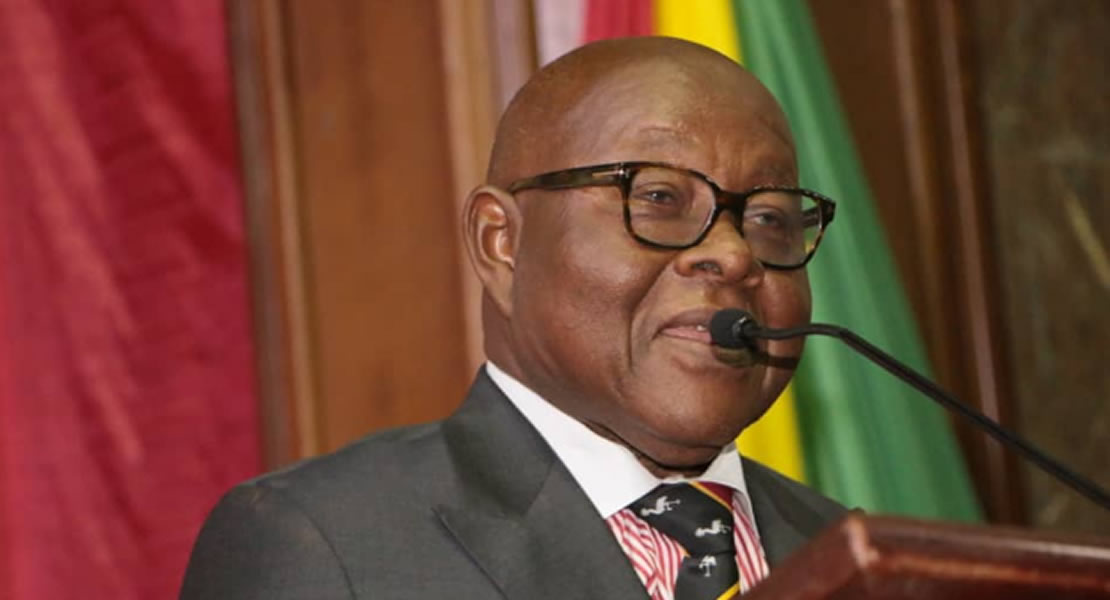
Professor Mike Oquaye, Second Deputy Speaker of Parliament, has called on the Constitution Review Commission (CRC) to treat every recommendation as significant and do a thorough job to ensure the removal of ambiguities from the 1992 Republican Constitution of Ghana.
“In amending this Constitution please tighten the screws; don’t take anything for granted,” Prof Oquaye told the Commissioners last Monday when the CRC held a hearing on party politics in Accra under the auspices of the Institute of Economic Affairs (IEA).
“The Constitution must be an instrument for political, social and economic engineering,” the Second Deputy Speaker stated, adding, “We must ensure that there is as little ambiguities as possible.”
He did not conceal his desire to see the review process result in a provision that adequately addresses the appointment of Members of Parliament (MPs) onto boards of state-owned enterprises (SOEs), whether they are wholly or partly owned by the state.
Some of the oft-cited provisions which are said to be tainted with ambiguity include Articles 19 and 267(6) (b). For instance, it has been proposed that Article 19 be further clarified by requiring that in all criminal trials documents available to the prosecution and witness statement in the custody of the prosecution shall be made available to the defendant to enable him to adequately prepare his defence.
Last Monday’s hearing was part of the CRC’s mini consultation process. It offered political parties the opportunity to present to the Commission their views on the many issues of governance that confront the nation. The consultation took the form of a court hearing with political party representatives appearing in the box as witnesses and putting their cases across. They were then questioned by the Commissioners with Prof. Albert K. Fiadjoe, CRC Chair, leading the exercise.
First to appear in the witness box was Alhaji Huudu Yahaya of the National Democratic Congress (NDC), who presented the consensual position of the four political parties with representation in Parliament. The position was contained in a communiqué issued at the end of a recent retreat at Aburi in the Akuapem South Municipality of the Eastern Region.
On behalf of the NDC, New Patriotic Party (NPP), Convention People’s Party (CPP) and People’s National Convention (PNC), Alhaji Yahaya pushed for a “Permanent Commission with an agreed template” to be established “to determine the salaries and allowances of the Article 71 category of office holders at all times and under all Presidents.”
In addition, “An Act of Parliament should determine the retiring benefits and awards of the office holders for all time but with appropriate adjustment formula for inflation and other significant variables.”
Also, the parties propose that there should be no ceiling on the number of Ministers to be appointed from Parliament. This will require an amendment to Article 78 (I). According to this provision, “Ministers of State shall be appointed by the President with the prior approval of Parliament except that the majority of Ministers of State shall be appointed from among members of Parliament.”
Supporting the recommendation to amend Article 78(1), Dr Paa Kwesi Nduom, 2008 CPP presidential candidate, testified that he was more effective as minister when he did not double as MP than when he held both offices simultaneously.
Dr Nduom was MP from 2005 to 2009 during which he partly served as minister in the Kufuor-led NPP administration.
He also proposed an amendment to Article 68(5) to allow the President to pay tax. In his opinion, the President must set example by paying tax in order to justify taxation of the citizenry. According to Article 68(5), the salary, allowances, facilities, pensions and gratuity of the President “shall be exempt from tax.”
On behalf of the Commissioners, Prof K. Fiadjoe assured the political parties that their views would be considered, indicating that the Commission would expect further inputs from individual political parties.
The nine-member CRC was set up by a Constitutional Instrument 20 10 (CI.) 64 as a Commission of Inquiry to conduct a consultative review of the operation of the 1992 Constitution after almost two decades of uninterrupted Constitutional Rule under the Fourth Republic.
The Commission was inaugurated by President John Evans Atta Mills in January, giving the members a three prong mandate. First, the CRC is tasked to ascertain from the people of Ghana, their views on the operation of the 1992 Constitution and, in particular, the strengths and weaknesses of the Constitution.
It is also expected to articulate the concerns of the populace as regards amendments that may be required for a comprehensive review of the 1992 Constitution; and finally to make recommendations to Government for consideration and provide a draft Bill for possible amendments to the 1992 Constitution.
Source: Public Agenda